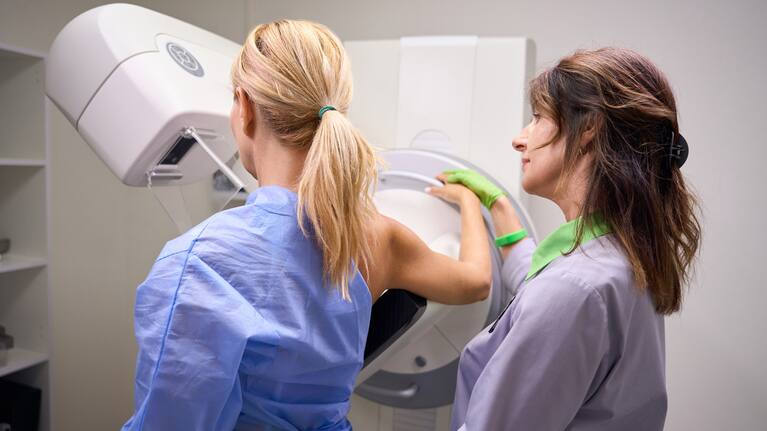Green Party co-leader Marama Davidson’s breast cancer diagnosis following a routine mammogram has highlighted the importance of timely cancer checks.
So, what cancer screenings are available to New Zealanders and when are people supposed to have them?
Breast cancer screening
Women aged between 45 and 69 are currently eligible for a free mammogram every two years through the national breast screening programme.
Work is underway to extend that eligibility to women aged 70 to 74. Health Minister Dr Shane Reti says the Government has met with officials to discuss what is needed to broaden the breast screening programme.
It's recommended women whose mother or sister had breast or ovarian cancer before the age of 50 get screened every year with a mammogram and ultrasound from 10 years before their relative's age at diagnosis - but not before they are 30 years old.
Mammograms are not usually advised for younger women as their breast tissue may be denser, making the mammograms harder to read.
However, people can and do get breast cancer before the age of 45, so women of all ages are urged to be breast aware. Women should also check their breasts regularly in between mammograms. The Breast Cancer Foundation has a guide for self-checking.
Davidson, 50, said it had been caught early and treatment will begin soon. (Source: 1News)
Cervical cancer screening
The national cervical cancer screening service was propelled into the spotlight following another MP’s cancer diagnosis.
Former Labour MP Kiri Allan revealed she had stage three cervical cancer in 2021. At the time, she said she had delayed getting screened and urged women to get checked.
The national cervical screening programme is available to people aged 25 to 69. The programme switched to screening for the human papillomavirus (HPV) in September 2023, as HPV is the cause of almost all cervical cancers.
People now have two options for checking for HPV – either through a vaginal swab that they can do themselves or through a cervical sample (smear test) done by a health professional.
Cervical screening is recommended every five years.
The programme is not fully funded, but free screening is available to Māori or Pacific people of any age, anyone over 30 who has never previously been screened or not had a screen in more than five years, and people who have a Community Services Card.

Bowel cancer screening
Much like cervical screening, bowel screening can prevent cancer by identifying abnormal cells.
The national bowel screening programme is free for people aged between 60 and 74 and should be done every two years.
People are sent a test kit to do a sample of their bowel motion at home. A test stick is used to collect a small sample of poo, which is then put in a provided zip-lock bag. People are given a pre-paid envelope to send their sample for testing.
Test kits need to be used within six months of receiving them.
Other screening
While New Zealand has just the three national cancer screening programmes, there are guidelines around checks for other types of cancer.
All people should regularly check for moles or patches of skin that are new or changing.
The Prostate Cancer Foundationsays men aged 50 and over should also talk to their GP about getting their prostate checked. Those talks should start at 40 for any men with a family history of prostate cancer.
The New Zealand Prostate Management and Referral Guidelines recommend men in these age groups get tested at least every one or two years through both a PSA blood test and digital rectal examination.
But if any person of any age has symptoms or concerns, the Cancer Society recommends seeing your GP – and not waiting for your next cancer screening test.





















SHARE ME